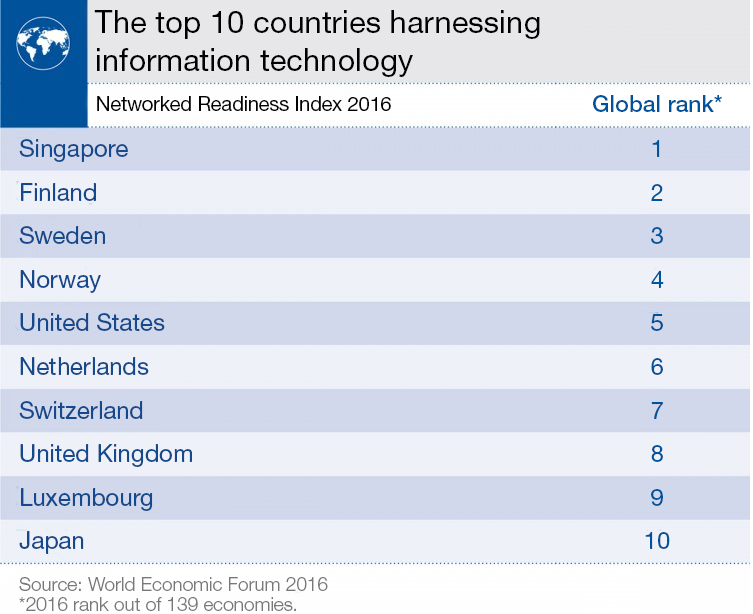World Economic Forum’s Networked Readiness Index 2016 reveals important information about how well a country can “transition to a new set of systems, bringing together digital, biological and physical technologies in new and powerful combinations.” This transition, as Web Economic Forum describes, is the dawn of the Fourth Industrial Revolution. The Networked Readiness Index, which was originally developed by Harvard’s Center for International Development, has been published since 2002 and is a key indicator of how countries are doing in the digital world. In a recent World Economic Forum post, networked readiness “depends on whether a country possesses the drivers necessary for digital technologies to meet their potential, and on whether these technologies are actually having an impact on the economy and society.” Information is broken by drivers, which are are grouped within three sub-indexes: the overall environment, readiness (infrastructure, affordability and skills) and usage (individuals, business and government).
Key highlights, directly quoted, include:
- Economic power does not necessarily reflect networked readiness – the top 10 Asian countries show that while Singapore leads the world, China is only four places higher in the ranking than Sri Lanka.
- Companies are facing increasing pressure to innovate continuously. Seven countries stand out in terms of the economic impact of their corporate digitization: Finland, Switzerland, Sweden, Israel, Singapore, the Netherlands and the United States. It is noticeable that all seven are characterized by very high levels of business information-technology adoption.
- Iceland tops the ranking when it comes to the use of social networks. In this new global economy, a country’s industrial might no longer plays a key factor.

